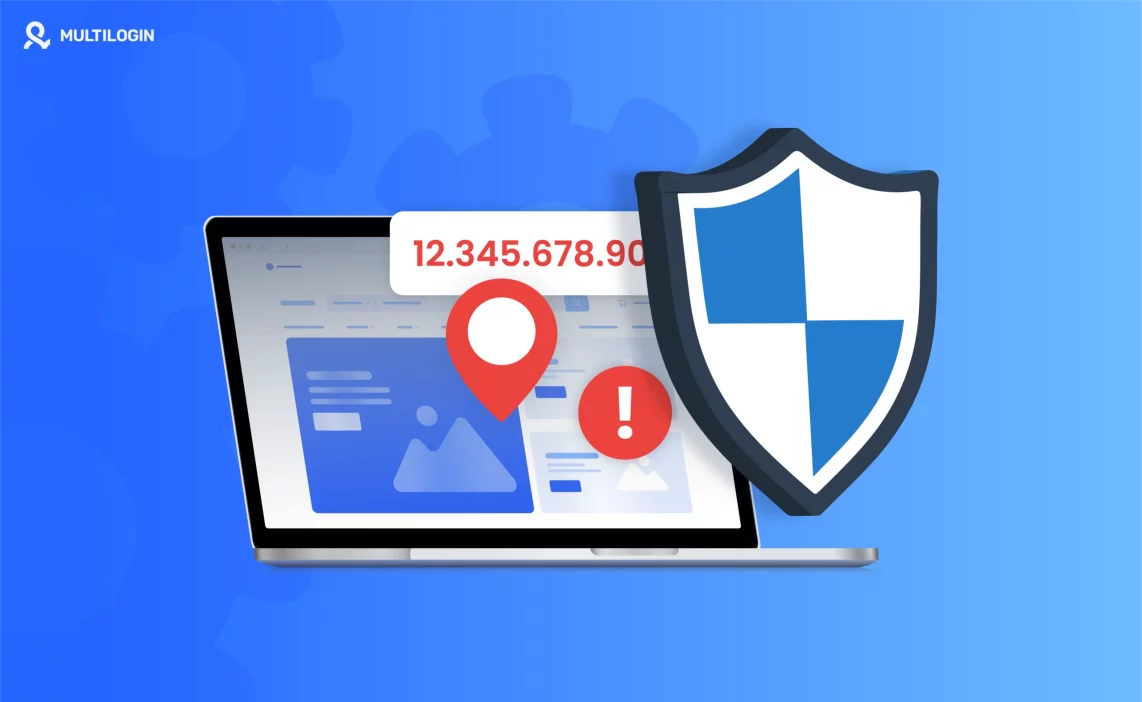WebRTC Leak Shield is a critical security tool that helps prevent WebRTC leaks, which can expose your real IP address even when using a VPN or proxy. WebRTC, short for Web Real-Time Communication, is a technology that allows web browsers to facilitate real-time peer-to-peer communication like video calls and file sharing.
However, the same feature that allows WebRTC to function can be exploited to leak your true IP address, bypassing the security measures of VPNs and proxies. WebRTC Leak Shield works by blocking any WebRTC requests that might lead to an IP leak, thus maintaining your online anonymity and security.
In today’s digital landscape, where privacy concerns are rising, and online anonymity is increasingly essential, tools like WebRTC Leak Shield have become indispensable for individuals and businesses alike.
How Does WebRTC Leak Work?
WebRTC leaks occur when your browser’s WebRTC function unintentionally exposes your real IP address while you’re connected to a VPN or proxy. Even if you’re using privacy-focused tools, WebRTC can bypass them and directly reveal your IP to the websites you visit.
This can be problematic, especially for those concerned about their privacy, such as users running multiple accounts, engaging in sensitive communication, or needing secure browsing.
For example, if you’re using a VPN to access content from a specific region and WebRTC leaks your real IP address, the website may block you based on your actual location. In the context of managing multiple online accounts, this could lead to account bans or other complications.
How to Add WebRTC Leak Shield on Mozilla Firefox
Mozilla Firefox users can easily prevent WebRTC leaks through browser extensions like WebRTC Leak Shield. Here’s a simple guide on how to add this essential tool to your browser:
- Launch Mozilla Firefox: Start by opening your Firefox browser.
- Visit the Firefox Add-ons Page: Click the menu button in the top right corner of Firefox (three horizontal lines) and navigate to “Add-ons.”
- Search for WebRTC Leak Shield: In the search bar, type WebRTC Leak Shield and press enter.
- Install the Add-on: Once you’ve found the add-on, click the “Add to Firefox” button. This will install the extension.
- Activate the Add-on: After installation, ensure the extension is enabled to protect you from WebRTC leaks.
Once installed, WebRTC Leak Shield will automatically block any WebRTC requests that could expose your real IP address. This way, you can browse securely without worrying about IP leaks, even if you’re managing multiple online identities or using a VPN for privacy.
How to Use WebRTC Leak Shield in Chrome
Unlike Firefox, Google Chrome doesn’t have a built-in option to disable WebRTC, which makes installing a third-party extension like WebRTC Leak Shield necessary to prevent leaks.
Here’s how you can install and use WebRTC Leak Shield or similar tools in Chrome:
- Open Google Chrome: Start your browser.
- Go to the Chrome Web Store: In the address bar, type chrome://extensions or visit the Chrome Web Store.
- Search for WebRTC Leak Shield: In the search bar of the Chrome Web Store, type WebRTC Leak Shield or similar add-ons.
- Install the Extension: Once you find the extension, click Add to Chrome to install it.
- Enable the Extension: Once the extension is added, make sure it’s activated in Chrome’s extension settings.
With this extension active, Chrome will block WebRTC requests that might leak your IP address, ensuring your privacy while you browse the web.
Why WebRTC Leak Prevention Matters
Whether you’re managing multiple social media accounts, running an online business, or simply maintaining privacy while browsing, preventing WebRTC leaks is crucial. WebRTC leaks expose your real IP address, potentially compromising your anonymity.
This becomes even more critical if you rely on VPNs or proxies to manage accounts across different platforms, especially when platforms like Twitter, Facebook, or Google closely monitor for activities that indicate multiple accounts.
For example, if you’re managing multiple Twitter accounts for marketing or promotional purposes, WebRTC leaks could reveal your real IP address, leading to suspicions of account manipulation.
Tools like Multilogin can help create separate browser profiles, ensuring you don’t get flagged by social media platforms, but WebRTC Leak Shield adds another layer of protection by preventing IP leaks altogether.
Benefits of Using WebRTC Leak Shield
- Enhanced Privacy: WebRTC Leak Shield keeps your IP address hidden, maintaining your privacy while using VPNs and proxies.
- Increased Security: The tool prevents sensitive data leaks, which is crucial when managing multiple accounts or engaging in sensitive communications.
- Ease of Use: Installing and using WebRTC Leak Shield is straightforward, with simple setup processes for both Firefox and Chrome.
- Compatibility with VPNs and Proxies: Whether you’re using a VPN, proxy, or Multilogin to handle multiple browser profiles, WebRTC Leak Shield ensures no IP leaks occur.
Is Mozilla WebRTC Leak Shield Add-on Good or Bad?
The WebRTC Leak Shield add-on for Mozilla Firefox is generally viewed as good for anyone who values their online privacy. Here’s a breakdown:
Advantages
- Simple Setup: Easy to install and configure.
- Effective Protection: Efficiently blocks any WebRTC requests that could leak your IP address.
- No Interference with VPNs: Works seamlessly with most VPNs and proxy services.
Disadvantages
- Impacts WebRTC-Based Features: Disabling WebRTC may hinder some services like video calls and peer-to-peer sharing.
Despite this small drawback, the benefits outweigh the cons for those prioritizing privacy.
WebRTC Leak Shield for Business Use Cases
Businesses managing multiple online accounts often face challenges related to privacy and security. WebRTC leaks can expose critical information, like real IP addresses, leading to account bans or loss of data control.
Using tools like Multilogin to create separate browser profiles, combined with WebRTC Leak Shield, can protect your business by ensuring your browsing remains anonymous.
Whether you’re handling marketing campaigns with multiple social media accounts or scraping data for business intelligence, these tools provide a secure way to scale operations without risking account suspensions or data breaches.
Frequently Asked Questions About What is a WebRTC Leak Shield
What is a WebRTC Leak?
A WebRTC leak occurs when a web browser reveals your real IP address to websites, even when you are using a VPN or proxy.
How Can I Stop WebRTC Leaks?
You can stop WebRTC leaks by using browser extensions like WebRTC Leak Shield on Firefox and Chrome or by disabling WebRTC manually on some browsers.
Does WebRTC Leak Shield Affect Video Calls?
Yes, blocking WebRTC may prevent video calls and peer-to-peer communications. Use the shield only if privacy is a higher priority than those services.
Can I Disable WebRTC Manually?
In some browsers like Firefox, you can manually disable WebRTC through settings like about, but for Chrome, an extension is required.
Is WebRTC Leak Shield Necessary with a VPN?
Yes, WebRTC Leak Shield is recommended even when using a VPN because WebRTC can bypass VPN protections and expose your real IP address.
Final Words
Preventing WebRTC leaks is crucial for protecting your privacy, especially if you rely on VPNs or proxies to manage multiple accounts or browse the web securely.
Tools like WebRTC Leak Shield for Firefox and Chrome offer a simple, effective solution to block WebRTC requests that could compromise your privacy.
Pair this with Multilogin‘s ability to manage multiple browser profiles, and you have a comprehensive privacy solution that ensures your IP remains hidden while you scale your operations.




